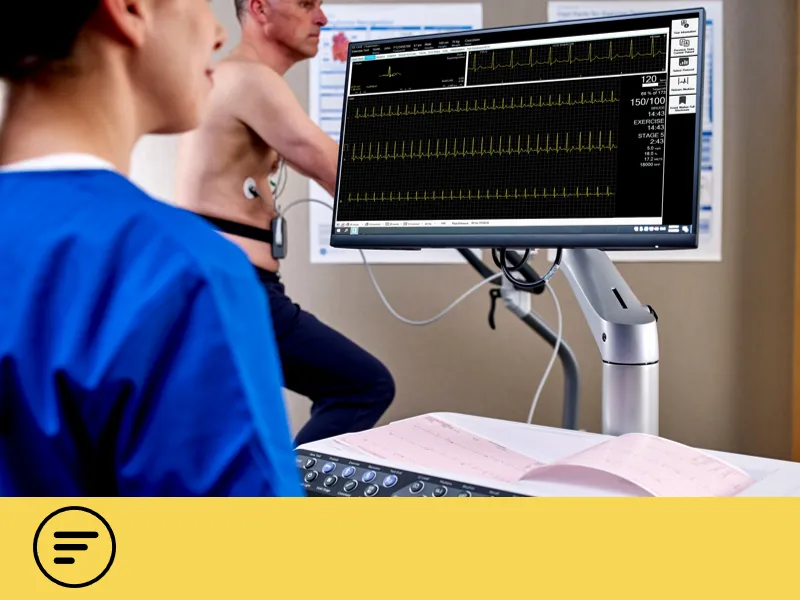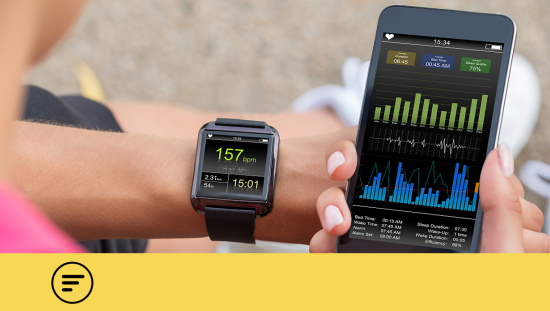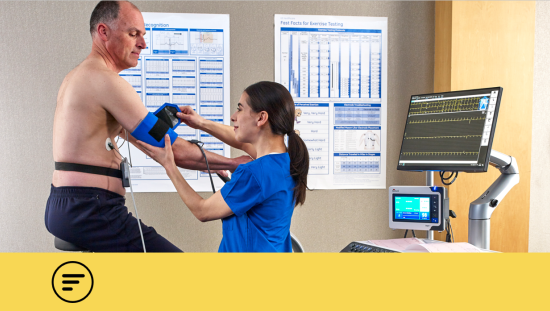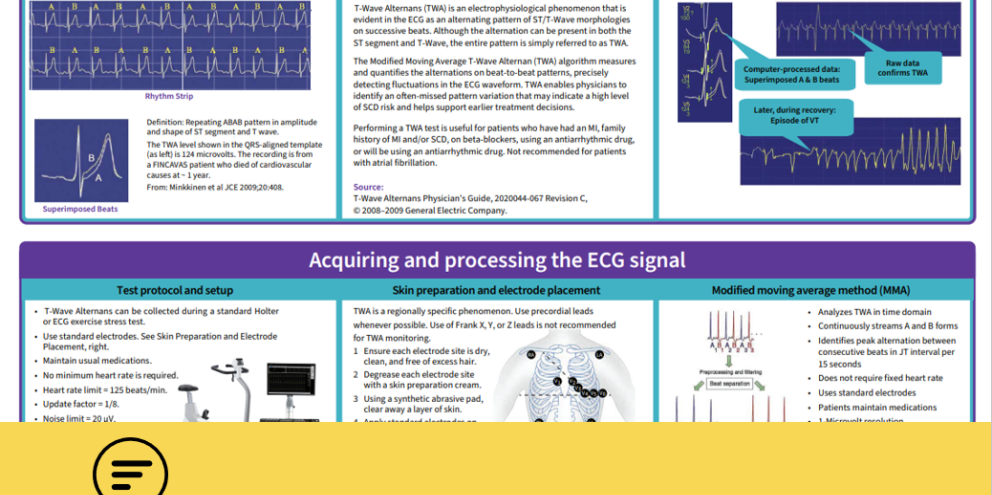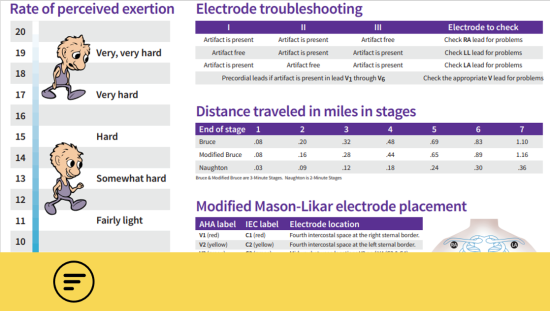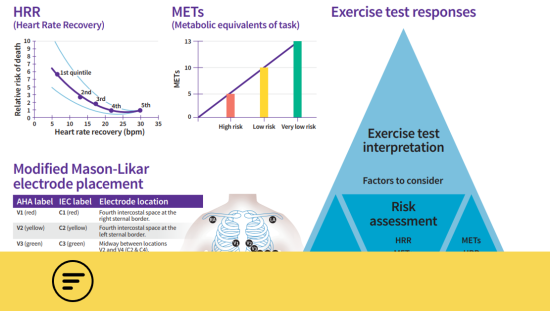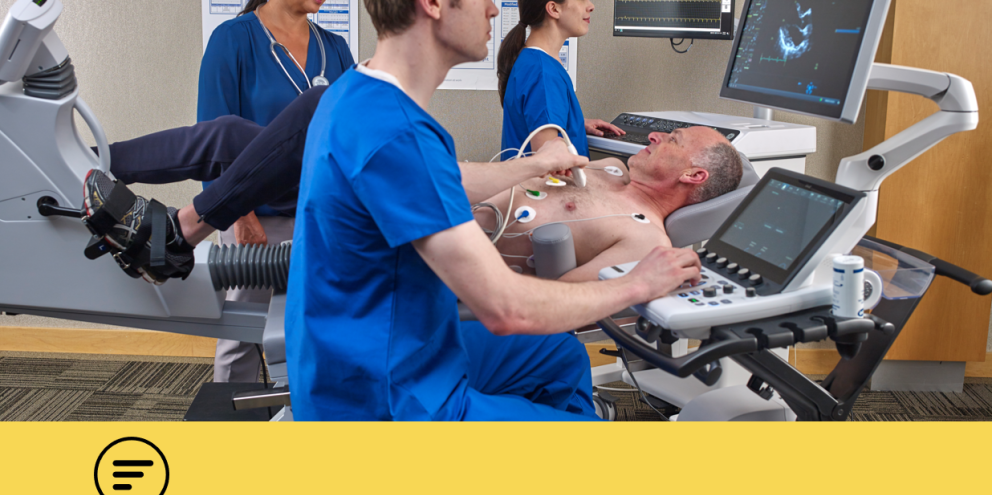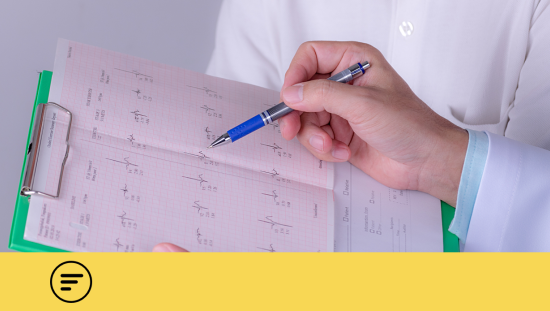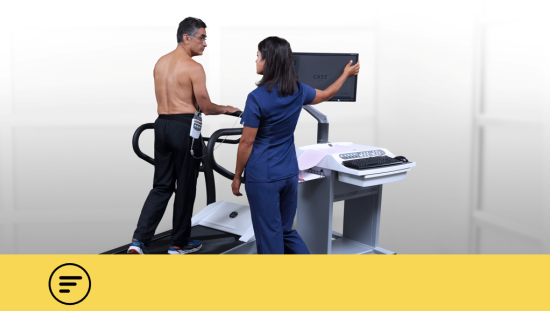The changing role of ECG stress testing
ECG stress testing plays a key role in the evaluation of cardiac patients¹, and yields valuable prognostic information², which is invaluable in determining treatment and management of patients.
On this page
Are you aware of the potential power of this test?
Let's explore some of those measurements
T-Wave Alternans in Stress testing
T-Wave Alternans (TWA) is an electrophysiological phenomenon that is evident in the ECG. TWA enables physicians to identify an often-missed pattern variation that may indicate a high level of SCD risk and helps support earlier treatment decisions. Performing a TWA test is useful for patients who have had an MI, family history of MI and/or SCD, on beta-blockers, using an antiarrhythmic drug, or will be using an antiarrhythmic drug. T-Wave Alternans can be collected during a standard Holter or ECG exercise stress test.
Some helpful resources
What about Dynamic Versus Pharma ECG Stress Testing?
Information gained from tests based on physical exertion reveal more about each patient's functional capacity, exercise tolerance, and factors resulting in symptoms.¹
Not forgetting Ischemia detection
Explore additional assets related to the role of ECG stress testing
References
1. Gulati M, Levy PD, Mukherjee D, et al. 2021 AHA/ACC/ASE/CHEST/SAEM/SCCT/SCMR guideline for the evaluation and diagnosis of chest pain: a report of the American College of Cardiology/American Heart Association joint committee on clinical practice guidelines. Journal of the American College of Cardiology. November 2021; 78(22): e187-e285. https://www.jacc.org/doi/10.1016/j.jacc.2021.07.053
2. Juhani Knuuti, William Wijns, Antti Saraste, Davide Capodanno, Emanuele Barbato, Christian Funck-Brentano, Eva Prescott, Robert F Storey, Christi Deaton, Thomas Cuisset, Stefan Agewall, Kenneth Dickstein, Thor Edvardsen, Javier Escaned, Bernard J Gersh, Pavel Svitil, Martine Gilard, David Hasdai, Robert Hatala, Felix Mahfoud, Josep Masip, Claudio Muneretto, Marco Valgimigli, Stephan Achenbach, Jeroen J Bax, ESC Scientific Document Group , 2019 ESC Guidelines for the diagnosis and management of chronic coronary syndromes: The Task Force for the diagnosis and management of chronic coronary syndromes of the European Society of Cardiology (ESC), European Heart Journal, Volume 41, Issue 3, 14 January 2020, Pages 407–477, https://doi.org/10.1093/eurheartj/ehz425

